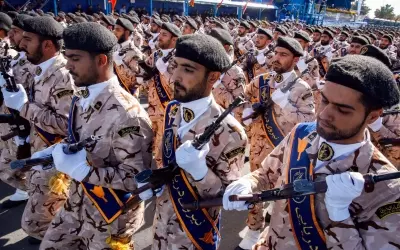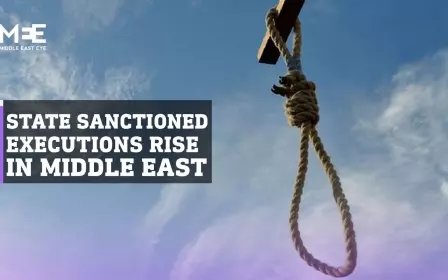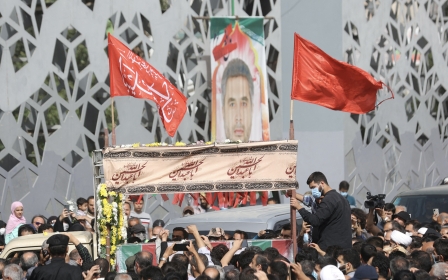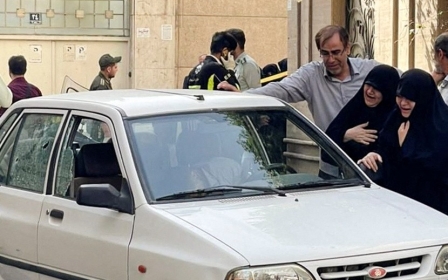US: Biden makes 'final decision' to keep Iran's IRGC on terror list, report says
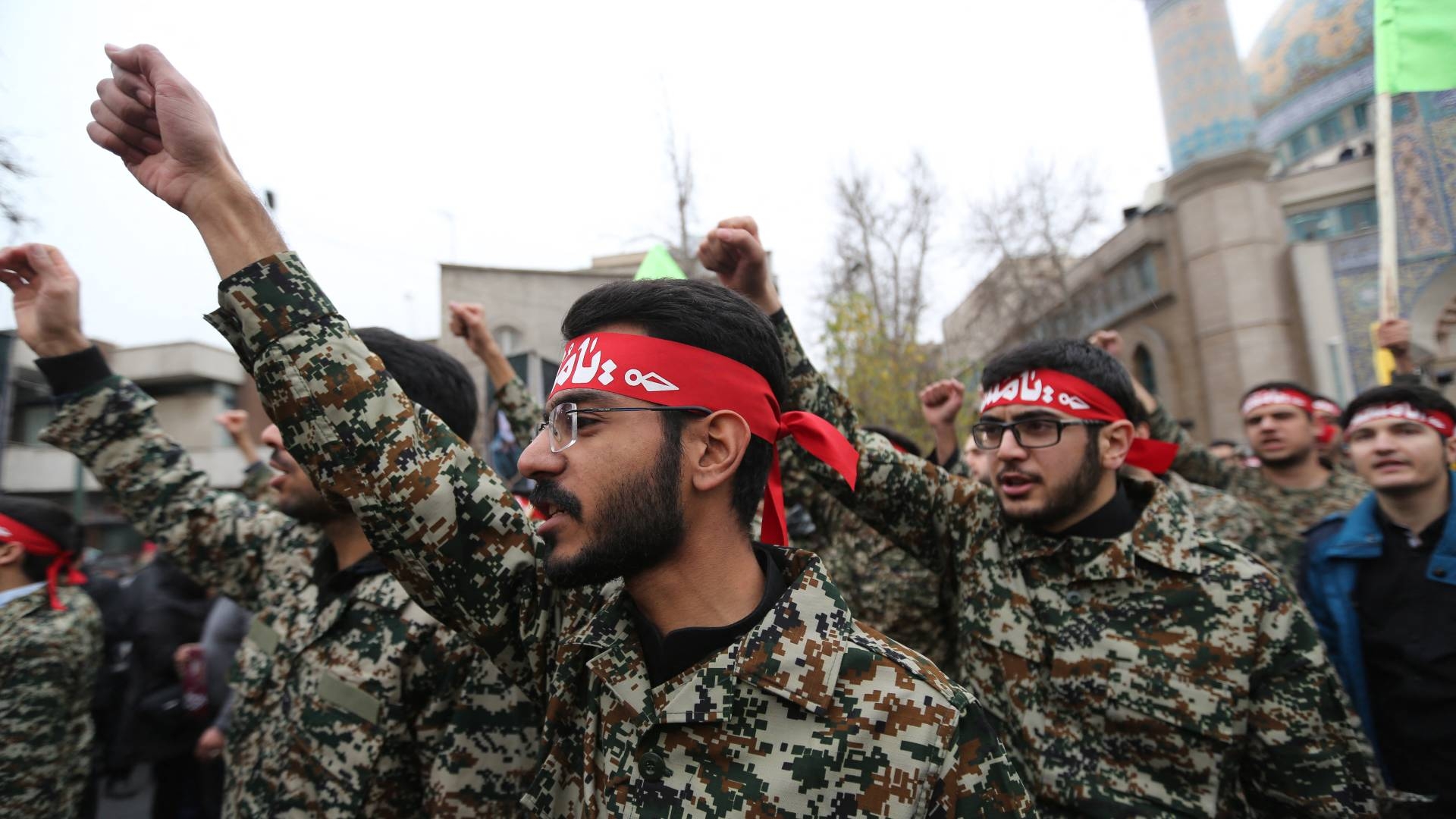
US President Joe Biden will keep Iran's Islamic Revolutionary Guard Corps (IRGC) on Washington's list of terrorist organisations, further complicating efforts to revive the 2015 Iran nuclear deal, Politico reported, citing a senior western official.
Another official told Politico that Biden had conveyed his decision during a 24 April telephone call with Israeli Prime Minister Naftali Bennett.
Bennett released a statement late on Tuesday confirming Biden's decision.
The official said the move is final and that Biden said the window of opportunity for concessions with Iran had passed.
The decision would likely make it difficult to advance the currently stalled negotiations aimed at a return to the nuclear deal, as Tehran has insisted that Washington must lift the designation in order for the country to finalise its return.
The report comes weeks after the Senate passed a non-binding resolution prohibiting the Biden administration from revoking the IRGC designation as a foreign terrorist organisation.
While the motion, introduced by Republican Senator James Lankford, is purely symbolic, it garnered support from 16 Democrats, sending a message to Biden that there was a significant level of bipartisan opposition to the move.
Meanwhile, Robert Malley, Biden's special envoy for Iran, is testifying on Wednesday in front of the Senate Foreign Relations Committee on the situation with the negotiations and US policy on Iran moving forward.
Following Tuesday's news, the US announced on Wednesday further sanctions against an international oil smuggling and money laundering network allegedly led by the IRGC's Quds Force. The Quds Force is one of the IRGC's five branches specialising in military intelligence operations and unconventional warfare and operations "external" to Iran.
Iran should look beyond JCPOA
The US blacklisted the IRGC in 2019, a year after former President Donald Trump withdrew from the Iran nuclear deal and imposed a "maximum pressure" strategy on the Islamic Republic that included reimposing sanctions.
When Biden came into office, his administration voiced an intention to return to the agreement, and soon joined indirect negotiations with Iran in Vienna.
However, after months of negotiations, debate over what to do about the IRGC designation emerged, including whether to leave the entire IRGC on the list, or only its Quds Force branch.
Politico reported that the decision to keep the group on the terror list is intended to allow Iran to decide whether it wants to sign a new agreement or continue to demand its removal.
"The US position has been that unless Iran agrees to take certain steps to assuage security concerns beyond the [Joint Comprehensive Plan of Action], Washington will not lift the terror designation, which itself is beyond the JCPOA," a US official familiar with the issue told Politico last month.
Secretary of State Antony Blinken told the Senate Foreign Relations Committee last month: "The only way I could see [the designation] being lifted is if Iran takes steps necessary to justify the lifting of that designation. So it knows what it would have to do in order to see that happen."
The move to keep the IRGC on the terror list is likely to be met with support from Washington's Gulf Arab allies as well as Israel, who had called on the US to oppose lifting the designation.
Israeli Foreign Minister Yair Lapid tweeted that the reported decision is an "important expression of the United States' commitment to security and stability in the Middle East in general and to the strategic alliance between the United States and Israel in particular".
On Sunday, a senior member of the IRGC, colonel Sayad Khodai, was assassinated in Tehran by two gunmen riding a motorbike outside of his home.
Israel has not claimed responsibility for the killing, but Iranian media outlets reported that members of an Israeli intelligence service network were discovered and arrested.
Middle East Eye delivers independent and unrivalled coverage and analysis of the Middle East, North Africa and beyond. To learn more about republishing this content and the associated fees, please fill out this form. More about MEE can be found here.


